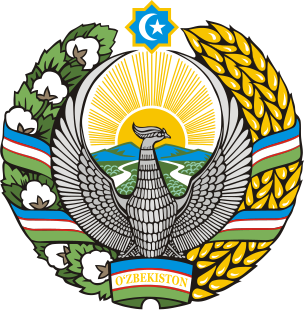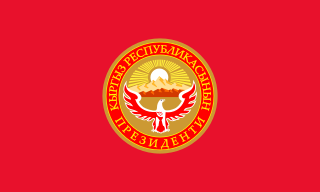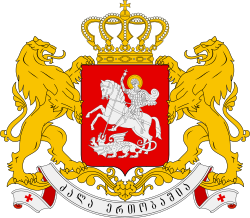
An electoral college is a set of electors who are selected to elect a candidate to a particular office. Often these represent different organizations, political parties, or entities, with each organization, political party or entity represented by a particular number of electors or with votes weighted in a particular way. The system can ignore the wishes of a general membership.
A primary election is the process by which voters, either the general public or members of a political party, can indicate their preference for a candidate in an upcoming general election or by-election, thus narrowing the field of candidates.

A parliamentary system is a system of democratic governance of a state where the executive derives its democratic legitimacy from its ability to command the confidence of the legislature, typically a parliament, and is also held accountable to that parliament. In a parliamentary system, the head of state is usually a person distinct from the head of government. This is in contrast to a presidential system, where the head of state often is also the head of government and, most importantly, the executive does not derive its democratic legitimacy from the legislature.

A first-past-the-post electoral system is one in which voters indicate on a ballot the candidate of their choice, and the candidate who receives the most votes wins. This is sometimes described as winner takes all. First-past-the-post voting is a plurality voting method. FPTP is a common, but not universal, feature of electoral systems with single-member electoral divisions, and is practiced in close to one third of countries. Notable examples include Canada, India, the United Kingdom, and the United States, as well as most of their current or former colonies and protectorates.
Open list describes any variant of party-list proportional representation where voters have at least some influence on the order in which a party's candidates are elected. This as opposed to closed list, which allows only active members, party officials, or consultants to determine the order of its candidates and gives the general voter no influence at all on the position of the candidates placed on the party list. Additionally, an open list system allows voters to select individuals rather than parties. Different systems give voter different amounts of influence. Voter's choice is usually called preference vote.
An indirect election is an election in which voters do not choose between candidates for an office, but elect people who then choose. It is one of the oldest forms of elections, and is still used today for many presidents, cabinets, upper houses, and supranational legislatures. Presidents and prime ministers can be indirectly elected by parliaments or by a special body convened solely for that purpose. The election of the executive government in most parliamentary systems is indirect: elect the parliamentarians, who then elect the government including most prominently the prime minister from among themselves. Upper houses, especially of federal republics, can be indirectly elected by state legislatures or state governments. Similarly, supranational legislatures can be indirectly elected by constituent countries' legislatures or executive governments.
A presidential election is the election of any head of state whose official title is President.

Elections to the European Parliament take place every five years by universal adult suffrage. 751 MEPs are elected to the European Parliament, which has been directly elected since 1979. No other EU institution is directly elected, with the Council of the European Union and the European Council being only indirectly legitimated through national elections. While Europarties have the right to campaign EU-wide for the European elections, campaigns still take place through national election campaigns, advertising national delegates from national parties.
Regular elections in Croatia are mandated by the Constitution and legislation enacted by Parliament. The presidency, Parliament, county prefects and assemblies, city and town mayors, and city and municipal councils are all elective offices. Since 1990, five presidential elections have been held. During the same period, nine parliamentary elections were also held. In addition, there were six nationwide local elections. Croatia has held two elections to elect 11 members of the European Parliament following its accession to the EU on 1 July 2013.

Elections in Ukraine are held to choose the President, Verkhovna Rada, and local governments. Referendums may be held on special occasions. Ukraine has a multi-party system, with numerous parties in which often not a single party has a chance of gaining power alone, and parties must work with each other to form coalition governments.

Elections in Malaysia exist at two levels: federal level and state level. Federal level elections are those for membership in the Dewan Rakyat, the lower house of Parliament, while state level elections are for membership in the various State Legislative Assemblies. The heads of executive branch at both the federal and state levels, the Prime Minister and Menteri Besar/Chief Ministers respectively, are indirectly elected, usually filled by a member of the majority party/coalition in the respective legislatures.

Uzbekistan elects on national level a head of state – the president – and a legislature. The president is elected for a five-year term by the people. The Supreme Assembly has 150 members in the Legislative Chamber, elected for a five-year terms and 100 members in the Senate; 84 members elected at the sessions of district, regional and city deputies, and 16 members appointed by the president. Most parties are excluded. Uzbekistan is a state dominated by the supporters of a head of state – the president. Opposition parties are allowed, but are widely considered to have no real chance of gaining power.
India is a federation with a parliamentary system governed under the Constitution of India, which defines the power distribution between the union, or central, government and the states.

Elections in Lithuania gives information on elections and election results in Lithuania.

Nauru elects on a national level a head of state and a legislature. Parliament has 19 members, elected for a three-year term in multi-seat constituencies. The president is elected for a three-year term by the parliament.

The President of Kyrgyzstan is the head of state and the highest official of the Kyrgyz Republic. The president, according to the constitution, "is the symbol of the unity of people and state power, and is the guarantor of the Constitution of the Kyrgyz Republic, and of an individual and citizen." The president is directly elected for no more than one six-year term by the Kyrgyz electorate. The office of president was established in 1990 replacing the Chairman of the Supreme Soviet that existed, in different forms, from 1927 whilst the country was known as the Kirghiz Soviet Socialist Republic.

The Parliament of Egypt is currently a unicameral legislature. The Parliament is located in Cairo, Egypt's capital. Under the country's 2014 constitution, as the legislative branch of the Egyptian state the Parliament enacted laws, approved the general policy of the State, the general plan for economic and social development and the general budget of the State, supervised the work of the government, and had the power to vote to impeach the President of the Republic, or replace the government and its Prime Minister by a vote of no-confidence.
Instant-runoff voting (IRV) is a type of ranked preferential voting method used in single-seat elections with more than two candidates. Instead of indicating support for only one candidate, voters in IRV elections can rank the candidates in order of preference. Ballots are initially counted for each voter's top choice. If a candidate has more than half of the vote based on first-choices, that candidate wins. If not, then the candidate with the fewest votes is eliminated. The voters who selected the defeated candidate as a first choice then have their votes added to the totals of their next choice. This process continues until a candidate has more than half of the votes. When the field is reduced to two, it has become an "instant runoff" that allows a comparison of the top two candidates head-to-head.

The 2014 European Parliament election in Poland elected the delegation from Poland to the European Parliament. It took place on 25 May 2014. The Polish electorate will elect 51 MEPs, compared to 50 in the 2009 election.. The number of MEPs is a result of the 2013 reapportionment of seats in the European Parliament. This means that Poland will have 6% of the total seats in the European Parliament.
General elections are scheduled to be held in Turkey in 2023. Voters will elect a new president, as well as 600 members of the Grand National Assembly of Turkey, each for a term of five years.















